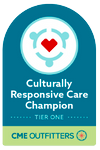Ketamine therapy has gained significant attention for its ability to rapidly alleviate symptoms of treatment-resistant depression, PTSD, and other mood disorders. However, despite its growing acceptance, several misconceptions about ketamine therapy persist. So, let’s separate fact from fiction and clarify what ketamine therapy is—and isn’t.
Misconception #1: Ketamine Therapy is a “Quick Fix”
While ketamine works much faster than traditional antidepressants, it’s not a silver bullet. Its primary role is to act as a catalyst for healing, allowing patients to break free from entrenched patterns of depression or anxiety.
However, long-term results often depend on integrating ketamine therapy with counseling, lifestyle changes, and ongoing support. As such, Bespoke Treatment focuses on using ketamine therapy as part of a holistic approach designed to promote lasting change—not just temporary relief.
Misconception #2: Ketamine Therapy is the Same as Recreational Ketamine Use
Recreational use of ketamine often involves unregulated, unsafe doses in uncontrolled environments. In contrast, ketamine therapy is medically supervised and carefully dosed to optimize therapeutic outcomes.
At Bespoke Treatment, sessions are conducted in a safe, supportive environment with experienced providers guiding patients every step of the way. Ketamine doses for mental health are also carefully calculated, starting at 0.5 mg per kilogram of body weight—significantly lower than the 4-6 mg per kilogram doses commonly used in operations or emergency medical care. This difference reflects the distinct objectives of each treatment: while medical procedures aim to take the mind completely offline, mental health therapy focuses on fostering introspection and neural restructuring. The lower dose range is specifically designed to achieve these therapeutic goals.
In contrast, it’s difficult to know what dosage you’re receiving recreationally. The environment is also vastly different, which could lead to vastly different outcomes.
Misconception #3: Ketamine Therapy is Unsafe
Ketamine has a long-standing history as an FDA-approved anesthetic and is widely used in hospitals and emergency rooms. In mental health treatment, doses are much smaller and carefully tailored to each patient’s needs. While side effects like nausea or mild dissociation can occur, these are typically short-lived and manageable.
Misconception #4: Ketamine Therapy Always Causes Dissociation
Dissociation is a common but not universal experience during ketamine therapy. Many patients describe this state as a sense of detachment from their thoughts or surroundings, which can foster new perspectives and insights. However, not everyone experiences dissociation, and its intensity can vary based on the dose and individual response.
At Bespoke Treatment, we prioritize education and personalized care to ensure each patient feels confident in their treatment plan. If you’ve been considering ketamine therapy, contact us today to learn how it could help you on your journey toward improved mental health.
















